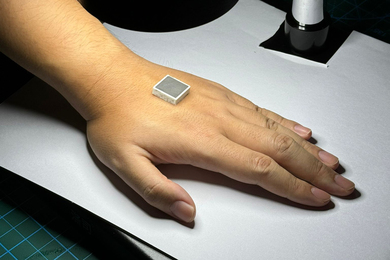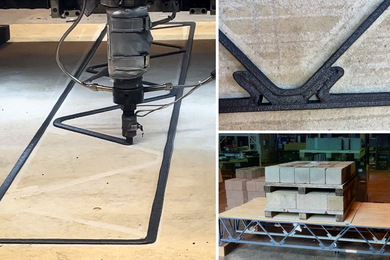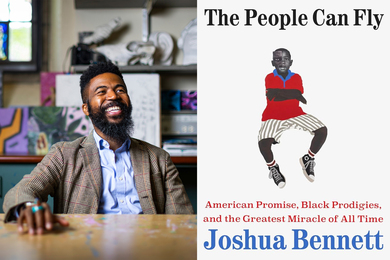Junior Gaurav Tewari and sophomore John McBean walked away with $250 each in prize money yesterday afternoon from the Concourse program's annual Perpetual Motion contest.
For the second time, the Concourse program offered a $500 award to the best submission by an MIT undergraduate for a perpetual motion machine that incorporates electrical or magnetic fields. Students had to submit a written proposal written clearly enough to be understood by first-year MIT students.
Mr. Tewari, an electrical engineering and computer science major, and Mr. McBean, a mechanical engineering major, designed a machine that involves a magnetically levitated, flat rectangular bar rotating in a vacuum-sealed glass container.
A post on the bottom of the glass chamber protrudes through a hole in the center of the bar and keeps it positioned correctly. The bar will stay suspended and rotating in a horizontal plane because of the interacting forces of two magnets at its ends and four magnets attached to the walls of the chamber, all with the same pole facing inside. Also, a magnet at the base of the glass chamber repels the magnetic underside of the rotating bar and helps it levitate.
While the two say that their design does not rely on complete elimination of friction (the near-impossible necessity for a true perpetual motion machine), they believe their idea of setting an object in motion in a nearly friction-free environment should "guarantee zero dissipation of energy" and therefore perpetual motion.
Concourse is a special unified program for first-year students that covers the entire core curriculum, offering the advantages of a small school without giving up the character and resources of MIT.
The contest submissions were judged by students and faculty, who rated each proposal according to their inability to refute it.
"Use of black holes, spatial singu-larities or magnetic monopoles are expressly forbidden. The motion must be truly perpetual and must not rely on 'natural' energy sources such as wind or tidal or planetary motion. In other words, you are invited to violate accepted fundamental laws in the most convincing way possible," the instructions state.
Robert M. Rose, professor of materials science and engineering, said that the contest is not an exercise in futility, but a great teaching vehicle. Students in a special Concourse class, Problems in Electricity and Magnetism, sometimes "invented" perpetual motion machines or seemingly unlimited supplies of energy.
Ensuing discussions led to spirited arguments, analysis and, according to Professor Rose, "a much deeper understanding of freshman physics... Then it occurred to us that we should extend this challenge to the MIT community at large. The problems presented are meant to stretch the students' minds and give them a better intuitive feel for physics."
A version of this article appeared in the May 19, 1999 issue of MIT Tech Talk (Volume 43, Number 31).





